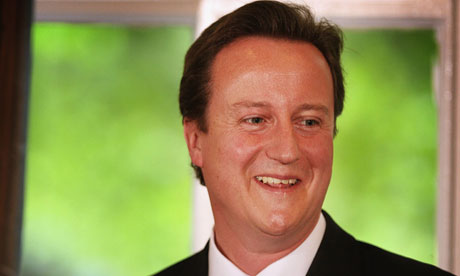
The government wants us to be happy. Hurray! For what is the purpose of government if it is not to ensure the wellbeing of its citizens? It has traditionally done this by busying itself with lawmaking around the people's health and wealth, but the third new year's wish of the trio – happiness – has apparently been deemed too trivial for policymaking.
And yet, it is clear that we are not a nation bursting with joy. That's not just the jaded view from the 9am commute. There are statistics. Here are a few. Gallup found 52% of people "very happy" in 1952 and only 36% in 2005. Since then we face daily reminders that the future is grim. Learning how to make us happy can only be for the good.
But surprising though it is that government wants to monitor our national state of mind in such a climate, the idea of a national measuring is not new. Bhutan pioneered the idea in 1972 with a gross national happiness index, which was intended to remind citizens that GNP wasn't everything and that the nation was concerned with spiritual values as much as with wealth. And, in 2002, New Labour was reported to be in talks with happiness economists. Ministers and Treasury officials sought inspiration from Andrew Oswald, professor of economics at the University of Warwick and one of the country's leading "happiness researchers".
"What people want to know now is why, if we're all so rich [it felt so in 2002], are we dissatisfied? Why isn't everyone happy?" he said then. That was also the year that economists became so interested in the impact of happiness on economies that the winner of the Nobel prize for economics was not an economist at all, but Daniel Kahneman, a happiness psychologist. More recently, France has decided to measure its citizens' wellbeing. Let us hope that Britain chooses different indices since the cross-Channel competition would be unbearable.
David Cameron's initiative could, though, lead the government into awkward policy areas. They would certainly need to consider growing inequality. All recent research suggests that the more unequal a nation, the less likely its citizens are to report themselves happy. But there are other less obvious pitfalls. Increased national wealth does not lead to happiness, as Gallup's poll records, so there's no point in boasting about increased GDP (or lamenting its decline under other administrations).
On the plus side for the government's current policy direction, marriage and working do promote happiness. Oswald famously put a price on a happy marriage. It was worth £70,000 of extra income a year, he said. Oswald also calculated the costs of restoring happiness after becoming unemployed (more than £100,000 a year – far in excess of any lost income). But in the same vein, he has concluded that the job and life satisfaction of highly educated people is lower than their less-educated peers, a future that today's students seem all too aware of.
The shift to politicians' worrying about what makes voters happy as opposed to advice from focus groups on how key words such as "scroungers" or "tax" lose support, is surely a change for the better. And the notion of measuring happiness is not as flaky as it first seems.
Politicians have tended to believe that they just instinctively understand what makes their constituents happy. Their political speeches are peppered with references to groups of voters whose needs they understand but the "members opposite" fail to. They make judgments about happiness all the time in policy proposals and voting. Now their decisions can have a scientific base. And what could be more scientific than recording how people tell you they feel? Who can gainsay someone if they report themselves miserable? If a colleague in the office says they are happy, then, however morose they appear, they probably are happy. The real measure of happiness is what people themselves report.
So roll on a coalition future of all of us being equally poor, in work, married, poorly educated and deliriously happy.

